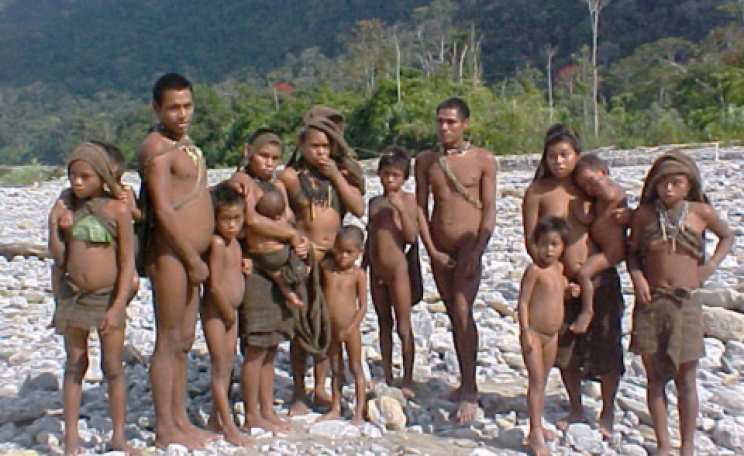The criminalisation of protests has been one of the main methods of silencing the Indigenous protestors
Stories of Indigenous communities protesting oil extraction on traditional tribal lands are not a new or even surprising occurrence within the spectrum of global ecological phenomena. It seems a dark joke on humanity that, so often, remote and isolated communities far removed from the global market and corporate mining enterprises are the first line of defence and the first casualties of oil pollution and mining contamination.
The North Peruvian province of Loreto is home to both the Peruvian Amazon and 27 Indigenous tribes that have coexisted with and relied on the rainforest for centuries. However in the 1970s, whilst the world was watching the Vietnam war, when a small company called Apple was founded, and an ambitious new Sci-Fi film series set in a galaxy far away was released, oil extraction moved into the Peruvian Amazon and grew to produce approximately 30% the Peruvian GDP. Since then, several oil corporations have been active in the region - companies such as OXY, Pluspetrol, China National Petroleum Corporation, and Petroperú, all participating in a relay race of dirty legacies.
So where was the Peruvian government during this ‘invasion'? The Peruvian Amazon is estimated to cover approximately 60% of Peru; of this forested land the Peruvian government has allocated, as of 2010, 49% to various corporations under oil and gas concessions. From this 49% more than half comprises land belonging to Indigenous communities and a further 17% is comprised of nature reserves. This systematic allocation of communal land to multinationals over the past decades has led to fierce opposition from Amazonian residents.
Indigenous Resistance
The impact of oil mining in the Peruvian Amazon has devastated generations of local inhabitants. The vast economic profits made by multinational oil companies and the Peruvian government have come at the price of the health of rainforest ecosystems and the people who live in it. Beginning in 1986, oil leaks have been contaminating waterways and land throughout the Peruvian Amazon, often being left untreated and unreported by the media thus incurring few if any repercussions for the perpetrating companies.
In more recent times, four declarations of environmental and sanitary emergency struck in the Loreto province between 2013 and 2014. In 2016, the North Peruvian Oil Pipeline (NPOPL), which has been in use for over 40 years, suffered over a dozen oil leaks due to poor maintenance. The Peruvian Amazon Research Institute (IIAAP) declared all water from the Tigre River undrinkable due to oil pollution, and there were numerous accounts of children dying from toxic oil poisoning. Due to the high levels of toxicity, fish - a staple of the Amazonian diet - must now be imported from neighbouring Ecuador, with food prices peaking.
In response to the January 2016 oil spills, the largest protest movement thus far was organised by the Kichwa people at the base of the Tigre River - the most polluted river in the area. Hundreds gathered for four months to block and stop the boats of oil companies from accessing the river, and to affirm the seriousness of the demands of local communities.
The criminalisation of protests has been one of the main methods of silencing the Indigenous protestors
Indigenous Demands to Government
"This region has been extremely polluted, people have died because of it, and yet still nothing is being done to contain the problem," said José Fachín, a community leader that has been instrumental in garnering support for the resistance movement. The protesters have set clear demands to the government, of which the primary requests are:
- Compensation by the State to Indigenous communities affected by oil pollution,
- The cleaning of oil spills by the North Peruvian pipeline in highly affected areas,
- Setting up a Communal Environmental Monitoring Act,
- The revision of plans for extending the federal contract with the current oil company Pluspetrol Norte,
- De-criminalisation of protests.
The demands presented are slowly gathering momentum and legitimacy through trials and legal procedures. Significantly, the criminalisation of protests has been one of the main methods of silencing the protests. Legal proceedings are being utilised, at present, to respond to and appeal events such as the 2008 imprisonment and torture of community leaders in response to peaceful protests. Nevertheless, affected communities continue to pursue government compensation, cooperation and recognition by insisting on consultation with an Indigenous collective before the allocation of new mining concessions, by organising dialogues and multi-sectoral commissions between all parties involved; by the judicialisation of protests, and by raising awareness through new interest from press and mass media.
The situations faced by Indigenous communities pose poignant challenges for the coming years. However, as momentum increases for the implementation of sustainable energy against fossil fuels, and as water scarcity becomes a reality, the significance of the irreparable harm done to communities and ecosystems, as well as the precedent of violence and destruction the oil industry has left on resource acquisition, cannot be understated or ignored.
This Author
Arthur Wyns is a tropical biologist who has previously worked in Australia, Costa Rica, Austria and Belgium. He's currently studying the processes that drive biodiversity in the Black Forest in Germany, and writes articles on sustainable development, forest ecology, conservation biology and climate change. With a group of young biologists he founded LonelyCreatures - an organisation that brings under attention the stories of endangered species across Europe







